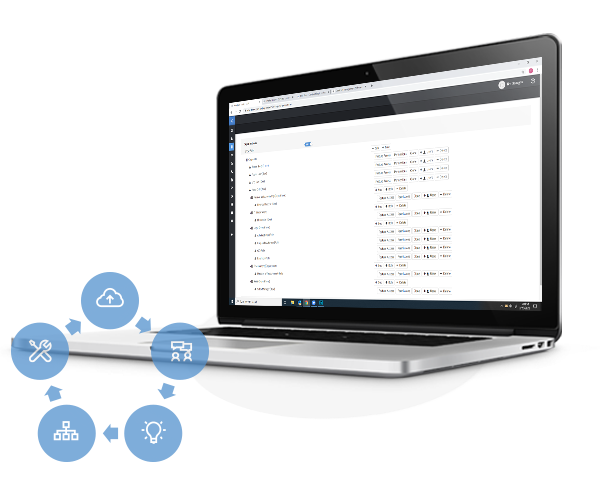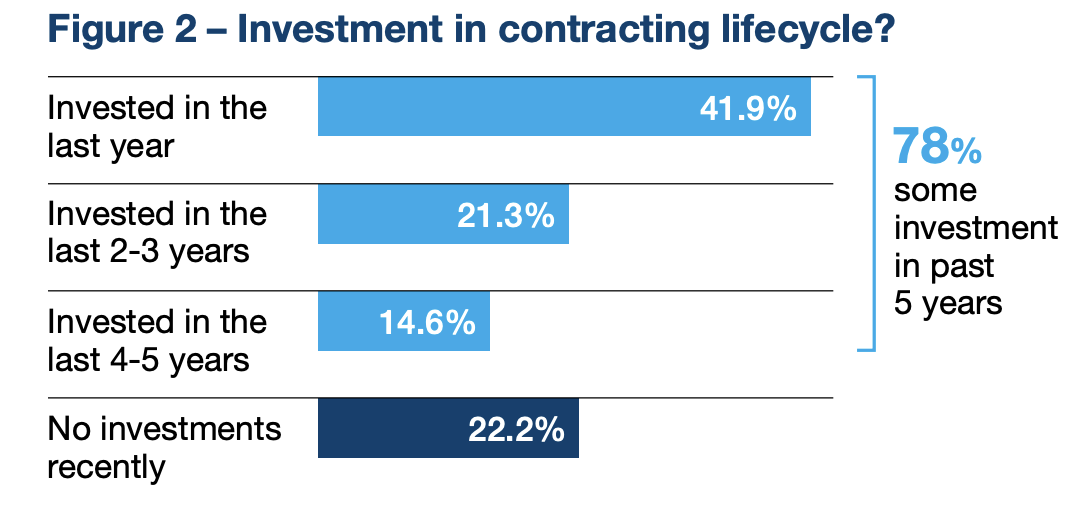From File Cabinets and Spreadsheets to AI: How CLM Platforms Ensure Business Continuity
Manual contract management leaves businesses exposed. Whether it’s a disruption caused by a natural disaster, employee turnover, or an unexpected supply chain delay, relying on file cabinets, spreadsheets, or outdated software limits access, slows decisions, and increases risk. To maintain business continuity, organizations need to modernize how they manage contracts.
Contract lifecycle management (CLM) platforms have become a strategic safeguard. By combining automation, secure digital storage, and AI-powered insights, CLM solutions ensure continuity and resilience across contract operations.
Quick Takeaways
- Manual contract processes introduce risk and fragility to operations.
- CLM platforms protect business continuity with automation, secure access, and centralized contract data.
- AI enhances contract resilience by identifying risks, preserving knowledge, and accelerating decision-making.
- Workflow automation, remote access, and obligation tracking allow businesses to operate without interruption.
😉 Learn how to strengthen your operations through each stage of contract management. Download The Complete Business Guide to the 8 Phases of CLM here.
Why Manual Contract Processes Threaten Business Continuity
Physical files and spreadsheet trackers make contract management dependent on location, memory, and individual employees. If key personnel leave or access to offices becomes restricted, essential agreements can go unseen or unmanaged. This can result in missed deadlines, compliance failures, and stalled business activity.
In contrast, CLM platforms centralize contracts and automate key tasks. They make it possible to continue contract execution, approvals, and renewals without disruption, even during high-risk scenarios.
Core Ways CLM Platforms Support Business Continuity
1. Secure, Remote Contract Access
A centralized CLM system ensures authorized users can securely access contracts from any location. This is essential during events like weather emergencies, pandemics, or office closures. Teams can continue reviewing, approving, and executing contracts without delay.
Advanced security features, including role-based permissions, encrypted access, and multi-factor authentication, help protect sensitive information while enabling business continuity.
2. Workflow Automation and Task Routing
Manual routing of contracts often creates bottlenecks and introduces errors. CLM platforms automate contract workflows, ensuring documents move smoothly through the approval process. Tasks are assigned automatically, deadlines are tracked, and escalations are built in.
This automation allows contract operations to continue even when team structures shift, or stakeholders are unavailable.
3. Automated Alerts and Obligation Management
Missed contract obligations can result in lost revenue, penalties, or legal exposure. CLM systems send automated reminders for key dates such as renewal deadlines, milestone obligations, and termination windows.
This proactive approach allows organizations to meet their responsibilities, even during periods of disruption or change.
4. AI-Powered Risk Detection
AI-enhanced CLM systems can scan large volumes of contracts to identify critical clauses like force majeure, indemnification, or service-level terms. These insights help businesses assess risk quickly and make informed decisions under pressure.
For example, during a supply chain interruption, companies can identify which contracts contain flexibility clauses and act accordingly.
5. Knowledge Retention During Staff Changes
CLM platforms preserve institutional knowledge by recording every action, change, and communication associated with a contract. This ensures that when an employee leaves, their contract history doesn’t leave with them.
The Role of AI in Strengthening Resilience
AI capabilities have transformed how businesses manage contracts. Beyond automation, AI tools analyze language, extract metadata, and deliver insights to reduce risk and increase efficiency.
AI supports business continuity in key ways:
Clause Analysis
AI identifies risk-laden clauses across thousands of documents instantly. It flags terms such as force majeure, limitation of liability, and termination rights, allowing legal and procurement teams to assess exposure and create contingency plans without manual review. This speeds up crisis response and supports proactive mitigation.
Bulk Data Extraction
AI extracts structured data such as contract values, renewal dates, and counterparty details for use in dashboards, compliance checks, and system integrations. This ensures up-to-date contract information is available across the business, reducing reliance on individual employees to surface key terms.
Contract Searchability
Intelligent search tools use natural language processing to locate clauses, terms, or contract types across repositories quickly. During critical decision windows, teams can pull up all contracts tied to a specific vendor, region, or risk type in seconds, ensuring they respond with full visibility.
Why Modernization Is a Strategic Imperative
According to industry research, 78% of companies have invested in CLM systems in the past five years, with most of those investments made recently. The shift is clear: modernizing contract management is a critical part of business continuity planning.
McKinsey’s 2024 Global Survey on AI found that AI adoption in business functions has grown significantly, rising from 50% in 2022 to 72% in 2024. The use of generative AI alone surged from 33% to 65% during the same period. These numbers reflect a rapid shift in how organizations prioritize digital transformation and operational resilience.
As regulatory environments change, operations become more distributed, and contract volumes increase, the need for resilient, AI-powered contract infrastructure will only grow.
Realizing the Full Value of CLM for Business Continuity
To maximize the impact of a CLM platform, organizations should:
- Centralize all contracts in a single digital repository
- Use AI to flag risks and extract obligations across agreements
- Automate workflows, reviews, and renewals to maintain momentum
- Train cross-functional teams to use CLM tools proactively
- Integrate CLM with CRM, ERP, and e-signature platforms for continuity across systems
These best practices help ensure your contract operations stay aligned with business goals, even during transition, uncertainty, or disruption.
Secure Your Contract Operations Today with Contract Logix
From automation to AI-powered insights, Contract Logix helps organizations modernize contract management and ensure business continuity.
Ready to replace outdated processes with secure, intelligent contract solutions? Request a personalized demo today to see how Contract Logix can support your continuity goals.
Navigate CLM Success With Contract Logix
Download our Data Extraction Product Brief to learn how you can begin to navigate CLM success by automating the hard work using artificial intelligence with one of the best Contract Management Software’s on the market today




